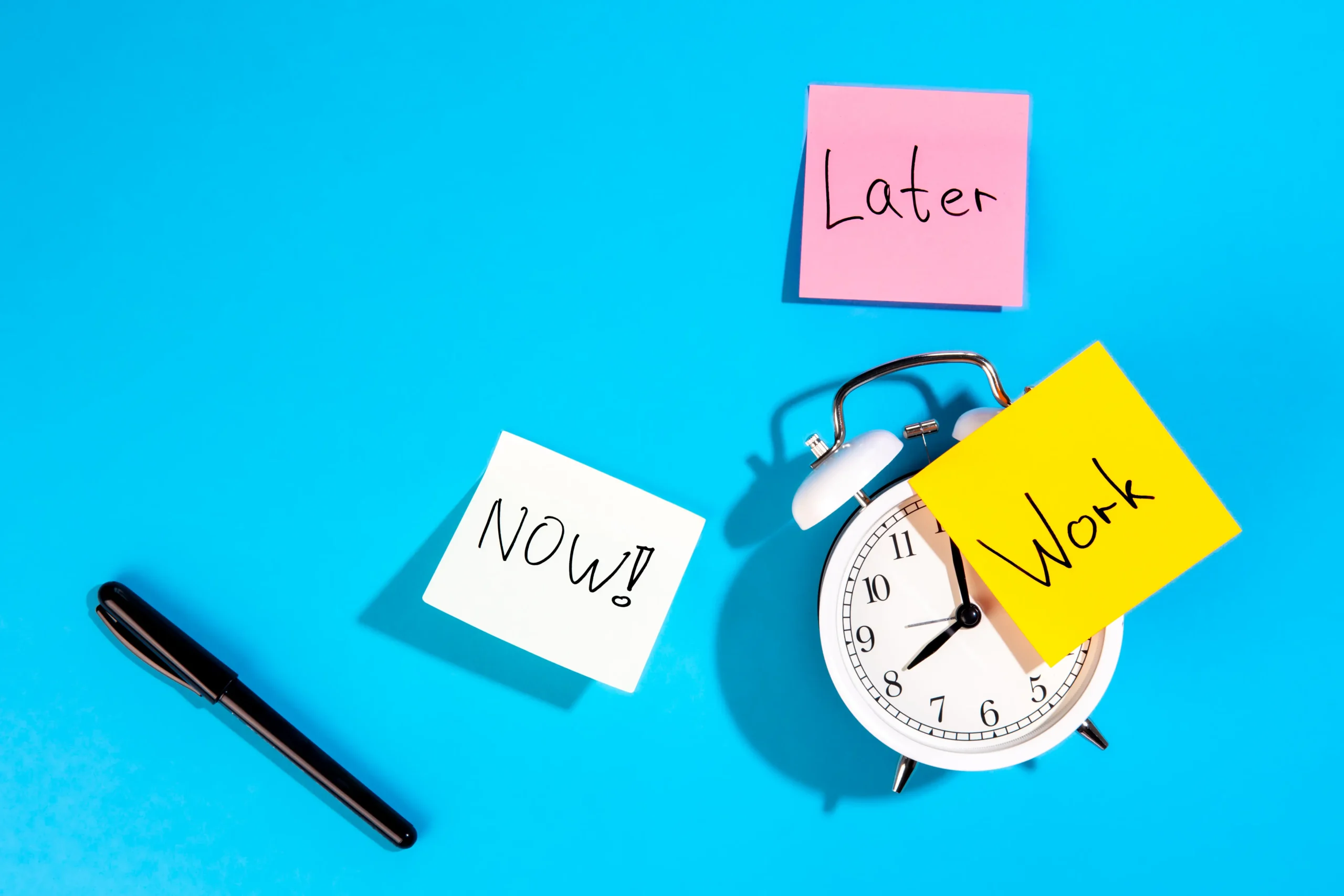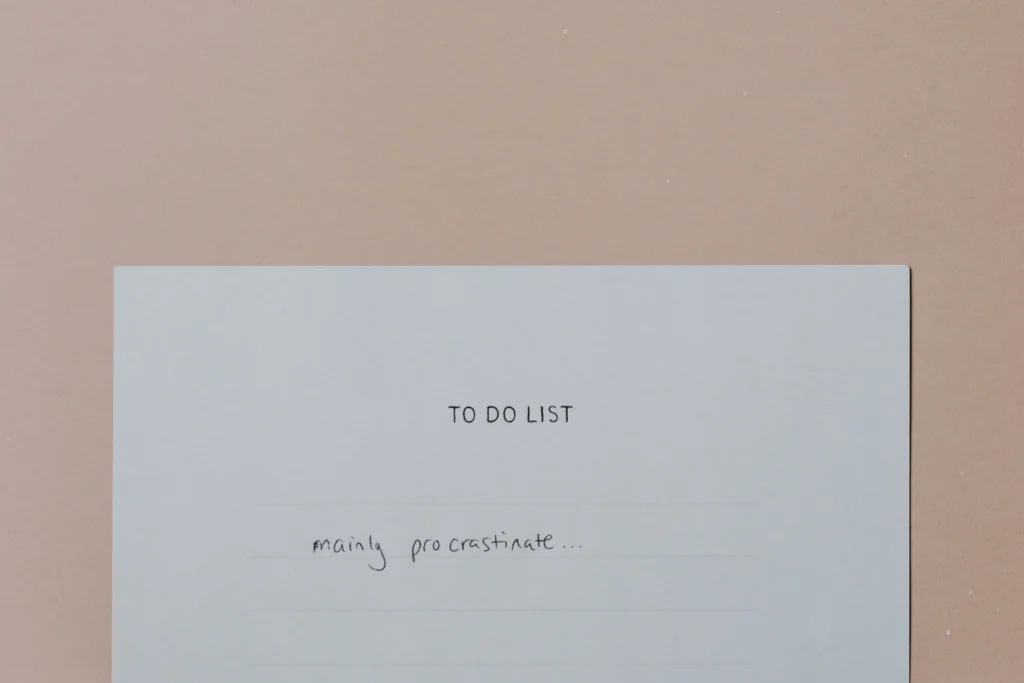Is Procrastination a Sin?

I sat staring at my laptop screen, the clock ticking away. I knew what I had to do. I even had a plan, a clear outline of steps ready to go.
But instead of diving in, I found myself scrolling through random articles, checking emails that didn’t need checking, and suddenly, I’d watched two videos on the history of pizza.
I knew I was procrastinating, yet I couldn’t bring myself to start. That moment got me wondering: Is procrastination a sin?
The short answer is no, it’s not. But it does tend to feel that way, right?
When a task lingers, guilt builds up, as if we’re somehow failing ourselves. We’re stuck, beating ourselves up, telling ourselves that we’re lazy, undisciplined, or lacking in some fundamental way.
But here’s the truth: procrastination isn’t a moral failing or a flaw. It’s a very human experience with roots in psychology, motivation, and even our innate survival instincts. So let’s take a closer look at why we tend to procrastinate and find solutions that truly make a difference.
Why do we procrastinate?
On the surface, procrastination can look like laziness, but that’s far from accurate. Psychologically, procrastination is usually a response to something deeper—often fear, self-doubt, or the overwhelming nature of the task itself.
Instant gratification bias
Our brains are wired for immediate rewards. If a task doesn’t promise an instant payoff, it can be hard to stay motivated. This “instant gratification bias” often leads us to prioritize short-term pleasures over long-term goals.
Hence, the Netflix binge instead of the workout or the scroll through Instagram instead of diving into a challenging project.
Fear of failure (or success)
Sometimes, we avoid tasks because we fear we’ll fail. What if we don’t measure up? What if we give our best, and it’s not enough? Oddly, a similar fear of success can also keep us from acting.
Success means change, new expectations, and sometimes even stepping outside our comfort zones. Either way, fear is a common trigger for procrastination.
Perfectionism and high standards
The idea of needing to do things perfectly can paralyze us. When a task demands perfect execution, beginning can feel like preparing for a battle. Ironically, perfectionism tends to create last-minute scrambles, where the final product is flawed and leaves us self-critical.
Overwhelm and unclear goals
When a project feels enormous, our brains respond by retreating. The task becomes so large and undefined that the brain can’t process where to begin.
Breaking things down into smaller, actionable steps can feel impossible in the face of what seems like an endless mountain.
Procrastination isn’t a sin – It’s a Call to Action
Understanding these psychological reasons helps us realize procrastination isn’t about moral weakness. It’s a symptom, a signal from our brains that something needs attention.

This shift in perspective is crucial because it takes away the blame game. Instead of thinking, “I’m terrible at this,” we can start asking, “What’s blocking me from starting?” It’s liberating and helps us develop tools to tackle procrastination rather than letting it fester.
How to overcome procrastination
The good news is that there are proven strategies for overcoming procrastination. Here’s what has worked for me, and it might work for you too.
Break down the task
When I’m facing a task that feels like a mountain, I remind myself of the power of small steps. Rather than writing “finish the project” on my to-do list, I write down the first thing I can do—maybe just “write the introduction” or “create an outline.”
Once you break down a task into bite-sized pieces, it becomes manageable. Momentum is powerful, and taking even the smallest step can propel us forward.
The 5-minute rule
Here’s a trick I’ve found incredibly effective: I tell myself, “I’ll just work on this for five minutes.” This lowers the mental resistance.
After five minutes, I usually find myself wanting to keep going. Starting is often the hardest part, and once you’ve started, you’re more likely to continue. This simple rule has pulled me through countless projects.
Understand your energy peaks
Our motivation isn’t a constant stream. Some of us are morning people, while others find their energy peaks in the evening.
I realized that setting aside time for tough tasks during my natural energy peak made them much easier to tackle. Recognize your rhythms, and plan your most demanding work accordingly. Working with your body rather than against it can make a huge difference.
Self-compassion and self-talk
It’s natural to criticize ourselves for procrastinating, but harsh self-criticism often backfires. Instead, I’ve learned to talk to myself kindly.
If you were helping a friend who’s stuck, you’d encourage them, right? Try doing the same for yourself. Reframe your self-talk from “I can’t believe I haven’t started” to “It’s okay; let’s focus on the first step now.” This change in perspective makes it easier to engage with the task.
Reward progress, not just completion
Our brains respond to rewards, so why not create them ourselves? I started celebrating small milestones with simple treats—a coffee break, a quick walk outside, or even a song I love. These little rewards signal to the brain that making progress is valuable, reinforcing the habit of taking action.
Progress, not perfection
Procrastination, if you think about it, is just a roadblock on the journey. It’s not the enemy—it’s part of the process. Each time we overcome it, we build resilience and learn a bit more about ourselves.
I remind myself that there’s no need to get everything perfect on the first go. Every step forward, however small, is progress, and in time, it adds up to something great.
So, is procrastination a sin? No. It’s simply a challenge—a bump in the road that, with patience and strategy, can be overcome. When we shift our mindset from seeing procrastination as a failure to understanding it as a signal, it stops holding us back. We stop feeling guilty and start moving forward with purpose. And every time we choose action, we’re building not only productivity but also self-trust.
The next time you find yourself caught in the procrastination loop, remember you’re not alone. Take a deep breath, start with a small step, and let that action be the beginning of a productive, fulfilling journey.
Photo by Annie Spratt on Unsplash and pvproductions on Freepik
